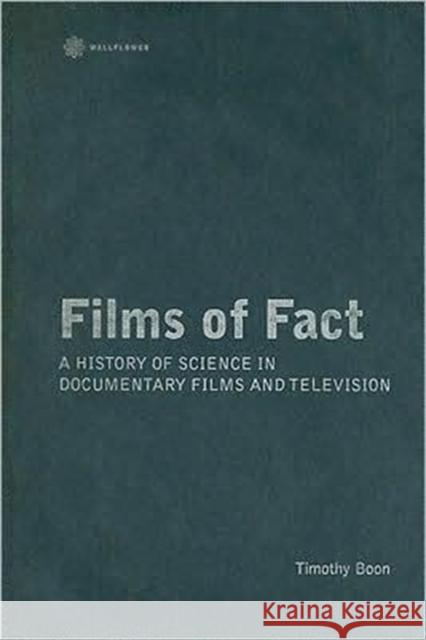Films of Fact: A History of Science in Documentary Films and Television » książka
Films of Fact: A History of Science in Documentary Films and Television
ISBN-13: 9781905674381 / Angielski / Twarda / 2008 / 224 str.
Britain has long been recognised for its proud contribution to documentary cinema, yet its long tradition of scientific and medical documentaries remains underrepresented in the literature on nonfiction film. Films of Fact is the first in-depth history of the genre, which began with amateur hobbyists in the early twentieth century, played a key role in government postwar health programmes, and became a treasured part of popular culture with BBC2's Horizon and the programming of Channel 4. Central to the narrative is Paul Rotha, a pioneering advocate of science broadcasting of the postwar period, and a figure second only to John Grierson in British documentary history, who helped nurture the collaborative ethos and practices that make scientific and medical documentaries a unique subgenre of documentary cinema. Written by a specialist scientific scholar, Films of Fact is a landmark text on a crucial yet rarely discussed aspect of British popular culture. Discussed are films such as World of Plenty (1943) and Land of Promise (1945) and television programmes such as Horizon (1964 onwards) and Crucible: Science and Society (1982).











